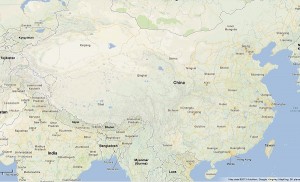
The report by the International Consortium of Investigative Journalists might fuel politically awkward attention on President Xi Jinping’s family and its wealth at a time when Xi has made fighting corruption a theme of his leadership.
Complaints that relatives of China’s leaders abuse their positions to profit from real estate and other deals are widespread. But details on their activities, especially those at the highest party levels, are often hidden.
The ICIJ, based in Washington, said it obtained documents showing the identities of nearly 22,000 owners of companies and trusts in the British Virgin Islands, Samoa and other offshore centers. It said they include Xi’s brother-in-law, former Premier Wen Jiabao’s son and son-in-law and relatives of other ruling party figures.
“Close relatives of China’s top leaders have held secretive offshore companies in tax havens that helped shroud the communist elite’s wealth,” the group said.
Chinese authorities moved quickly to block the country’s public from seeing Wednesday’s report. Access to the ICIJ website was blocked, as were foreign news reports about it. A reporter posted an Internet link to the report on the popular Sina Weibo microblog service but received a message from the company saying other users were blocked from seeing it.
Such offshore entities are legal and often are used by Chinese companies to control foreign subsidiaries, but activists and investigators believe corrupt officials also might use them to hide improperly obtained money.
“Most Chinese leaders and CCPC (Communist Party) members have planned their escape decades ago,” said a comment left by a reader on the website of the Hong Kong newspaper South China Morning Post. “It’s all about exploiting the resources and people in China to benefit the privileged few.”
The report gave no financial details and stressed that ICIJ was not suggesting anyone named has “broken the law or otherwise acted improperly.” The group said it would release a full list of names on Thursday.
Communist leaders are intensely sensitive to suggestions they have profited from China’s economic boom. The ruling party insists public scrutiny of their financial affairs is not permitted.
Complaints about the lavish lifestyles of officials, Communist Party figures and military officers who drive luxury cars, own villas and send their children to elite foreign universities have fueled political tensions.
Police have detained activists who called for party leaders to disclose their family wealth to China’s ceremonial parliament.
The ICIJ’s list could prompt heightened scrutiny of the individuals mentioned.
Xi’s brother-in-law, Deng Jiagui, a wealthy developer, owns 50 percent of a British Virgin Islands company, Excellence Effort Property Development, according to ICIJ. It said the other half is owned by two other Chinese developers.
The list also includes relatives of former President Hu Jintao and the late supreme leader Deng Xiaoping.
In 2012, Bloomberg News and The New York Times reported on wealth amassed by relatives of Xi and Wen, the former premier. The government blocked access to the websites of the two organizations.
RELATED STORIES
China’s Bo Xilai indicted for corruption, abuse of power
Dust of corruption case lingers over China’s Nanjing—Focus